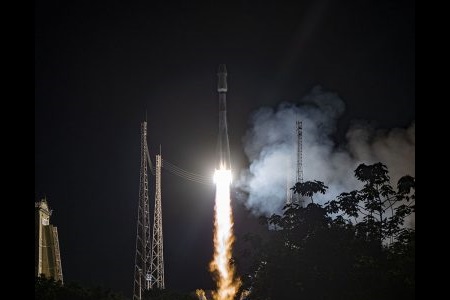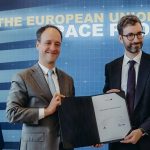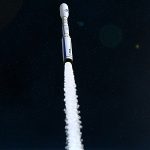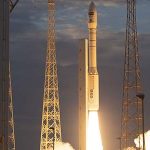Arianespace is now preparing to launch the James Webb Space Telescope for NASA on December 22.
 Arianespace successfully launched another two satellites for Europes Galileo satellite navigation system. The FOC-M9 (23-24) and SAT 27-28 payloads lifted off on a Soyuz rocket from French Guiana.
Arianespace successfully launched another two satellites for Europes Galileo satellite navigation system. The FOC-M9 (23-24) and SAT 27-28 payloads lifted off on a Soyuz rocket from French Guiana.
This was the 11th launch for the constellation by Arianespace, which has now orbited 28 satellites, including 4 IOV, for Galileo.
These two satellites are the 179th and 180th launched on behalf of European institutions. More precisely, it is the 61st mission launched by Arianespace for ESA and the 23rd and 24th FOC satellites launched by Arianespace for the European Commission.
Stéphane Israël, CEO of Arianespace, said: Congratulations Europe! With this 11th launch for Galileo, the constellation is now counting 28 satellites in orbit. Arianespace is proud to guarantee secure and autonomous access to space with the deployment of Galileo, marking another step towards European independence in satellite navigation. I would like to thank the European Union, especially the European Commission, as well as the European Space Agency, our direct customer for this launch, for continuing to trust us with their satellites.
Operational since 2016, Galileo is the global navigation satellite system that is fully financed and owned by the European Union. Under civilian control, it offers high-precision positioning, navigation and timing services to more than 2.3bn users worldwide. Undertaken by a European partnership, the European Commission manages Galileo, with European Space Agency (ESA) as the design authority overseeing its development, procuring satellites and the ground segment, and the European Union Agency for the Space Programme (EUSPA) overseeing Galileo operations and service provision.
This flight will also mark 10 years of Soyuz operations in French Guiana and its 26th mission for the European Spaceport.
















































































